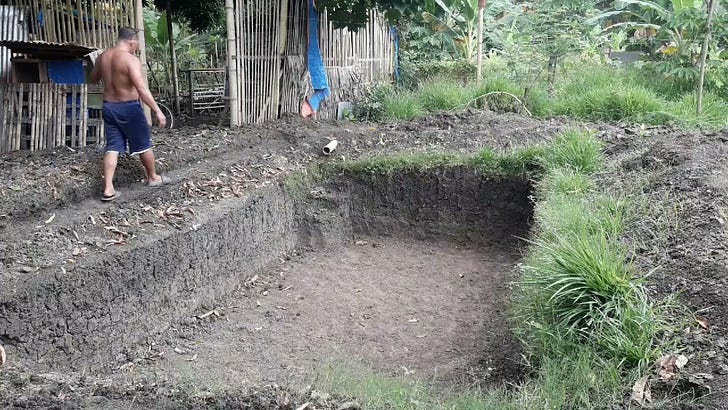31 March 2023
Yonezawa, Japan
Mind-dump
Am here in Japan studying up on people who knew how to plough through a famine. Japan has had hundreds of famines. Many causes such as volcanic eruptions.
One man who knew was very smart about famines was Yozan Uesugi. I am in the town of Yonezawa. This was his land. Sitting beside me is a translated book YONEZAWA TRANSFORMED: A LIFE OF YOZAN.
Yozan’s bodily life spanned from 1751 to 1822.
The Great Tenmei Famine lasted from roughly 1782 to 1788. This famine seems to have resulted from numerous conditions and disasters, such as volcanic eruptions in Japan and possibly also an eruption in Iceland in 1783. Never underestimate fire mountains.
Yozan sensed trouble. And while much of Japan went into severe hunger and much death, this area where I now sit was spared due to preparations attributed to Yozan and his advisors.
Yozan recommended fishponds as an example. And published many copies of a sort of forest survival manual. Some of those foods are on the menus here still, and I have been eating some of the “famine food” which is as good as any food, such as bean tea.
Earlier this week, we were in another part of Japan, Odawara, near Mt. Fuji. We were studying Kinjiro. Kinjiro’s name is Ninomiya Sontoku. Most Japanese call him Kinjiro. Kinjiro’s bodily life spanned from 1787 to 1856.
Kinjiro also learned the ways of famine and also got his people without death through severe famine in 1833. Both Kinjiro and Yozan before him saw famine coming in advance. They saw it before most others and got to work. Both are said to have saved all their people while many others perished. Both used simple items such as fishponds.
Note: Both Kinjiro and Yozan are actually mostly known for other things, such as building their economies and improving general life in their areas. I am only focusing on the famine parts, but most Japanese seem to only glance at the famine parts and focus on other successes both men created in separate parts of Japan during different times.
In the 1960s, Thailand was having a protein shortage, and His Excellency King Rama IX contacted his friend in Japan, Crown Prince Akihito, who sent tilapia fish to Thailand. King Rama IX bred and spread the fish all over Thailand, and today you will see fishponds all over Thailand. Thais now call the fish Phra Nil. If you are in Thailand, check the menu for Phra Nil, and you likely will see the gift from Japan.
You never heard about the Thai famine of the 1960s because it never happened. King Rama IX saw it coming. He studied water and traveled all over Thailand on water and agricultural projects. Both Yozan and Kinjiro also studied water and studied people, and made custom solutions.
Some common lessons from Yozan, Kinjiro, and King Rama IX: If you see famine coming and take action, you can sail right through. Your boat will get pushed around during the rough times, but you will get through and live to tell the tale. Those who do not see it and prepare for it will be down to eating bugs, dying of fevers, and in ditches. They all studied water. They all taught modest living. They all encouraged fishponds.
Fishponds are not the end-all and be-all, but they are very important.
I found these fishpond videos online. There are many more. Some are low-budget, and made with a shovel. Others are multi-acre mansion ponds. Across Asia and America, you can see ponds in many sizes.
The biggest lesson is that you don’t have to starve or even go hungry…if you are mindful and prepared. Working together is essential.
End mind-dump.



Michael, you have certainly educated and warned us. Now it's for us to take action on...
Thanks for all you do!
Good Morning from the Yukon - Canada's north country. Fishponds sound great and I do envy those who can seed them and thrive. In the north we need a very deep lake to avoid full depth freeze at -40*+ in the winter. But I realize we have options of moose, deer, elk, bison and caribou. We also have a very short growing season - sometimes only 12 weeks from last snow to first snow... I have bought a dehydrator and have been dehydrating vegetables or well over a year now and gathering essentials of things we can't do without. Learning how to save anything re-useable and handy to help fix something. We put in a solar system, and used this winter to see how many kilowatts were necessary each month before we hook it up. Marking weather temps and amounts of sun. I think we are ready, but who really knows? I have neighbours who have small children and though I encourage, it isn't heard and I am considered a bit odd - oh well.... there's worse, I'd guess, but I know I need enough for us all to survive!